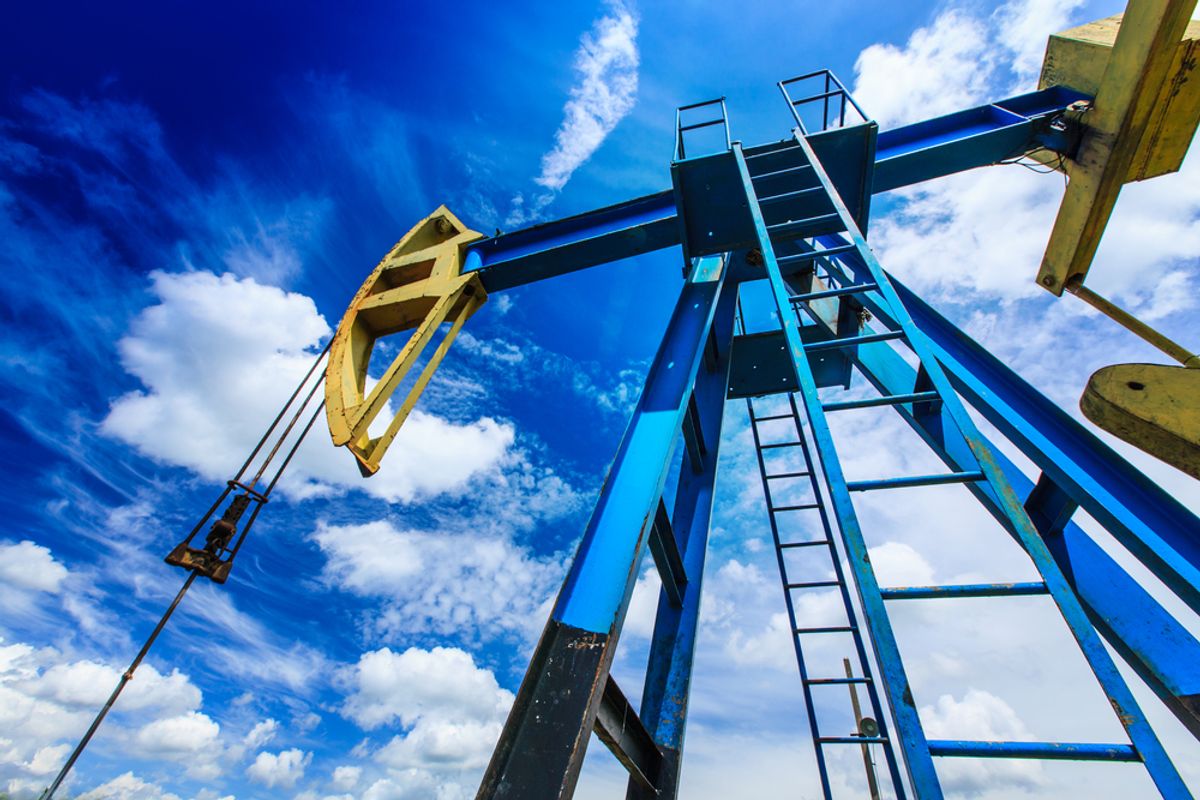Between 2007 and 2013 in the U.S., something sort of incredible happened: the amount of climate change-causing greenhouse gas emissions we were pumping into the atmosphere declined by 11 percent.
That this dramatic turn of events coincided with the beginning of the U.S. fracking boom was deemed no coincidence, and thus began a politically friendly story we began telling ourselves: our increased use of natural gas, which is still a fossil fuel but which burns cleaner than coal, was largely responsible for the downturn. We were fracking our way clean out of the climate crisis -- and could use natural gas as a crutch to lean on while we worked on switching over to clean energy.
Sound too good to be true? According to a new study in the journal Nature Communications, that's because it is. While natural gas did become a big part of our energy mix during this time, researchers found, the vast majority of the reductions in emissions can actually be attributed to the economic recession.
"Although increased use of natural gas by the energy sector has helped to keep U.S. CO2 emissions from rising during the economic recovery," the authors wrote, "our decomposition analysis shows that decreases in the energy intensity of the manufacturing, transport and service sectors over the same period were even more important."
That means the decline was not a "surprise side effect" of the fracking boom, natural gas is not a "bridge fuel" that can propel the United States into a low-carbon future, and the "green case for fracking" is less convincing than ever.

From 2007 to 2009, when emissions declined the most, the study finds that 83 percent of the decrease was due to economic factors including consumption and production changes, and just 17 percent of the decline related to changes in the fuel mix. (Feng K, Davis SJ, Sun L, Hubacek K. 2015. Drivers of the US CO2 emissions 1997-2013. Nature Communications.)
"Natural gas emits half as much CO2 as coal when used to make electricity," explained study co-author Laixiang Sun, a professor at the University of Maryland. That's the reason why it's such an enticing alternative to coal. However, Sun added, "This calculation fails to take into account the release of methane from natural-gas wells and pipelines, which also contributes to climate change." And methane leaks, of course, are a major reason why most environmentalists oppose fracking -- that, along with its links to air and water pollution, earthquakes and the like.
This isn't the first study to suggest that fracking isn't the solution to climate change. Another, published last fall, arrived at a similar conclusion to this one: fracking, it found, is going to have a minimal impact on U.S. greenhouse gas emissions, at best, and our reliance on it is likely to hinder the development of the truly green energy solutions we need.
The authors of this study concur, and warn that it's time to stop falling for the fracking fallacy. "If we don't understand the factors that led to this emissions reduction, we won't know how to effectively reduce emissions in the future," explained University of Maryland professor Klaus Hubacek. Now that we know, we've got to rethink some of our plans -- and should be holding our breaths for the EPA's upcoming power plant rules.

Shares